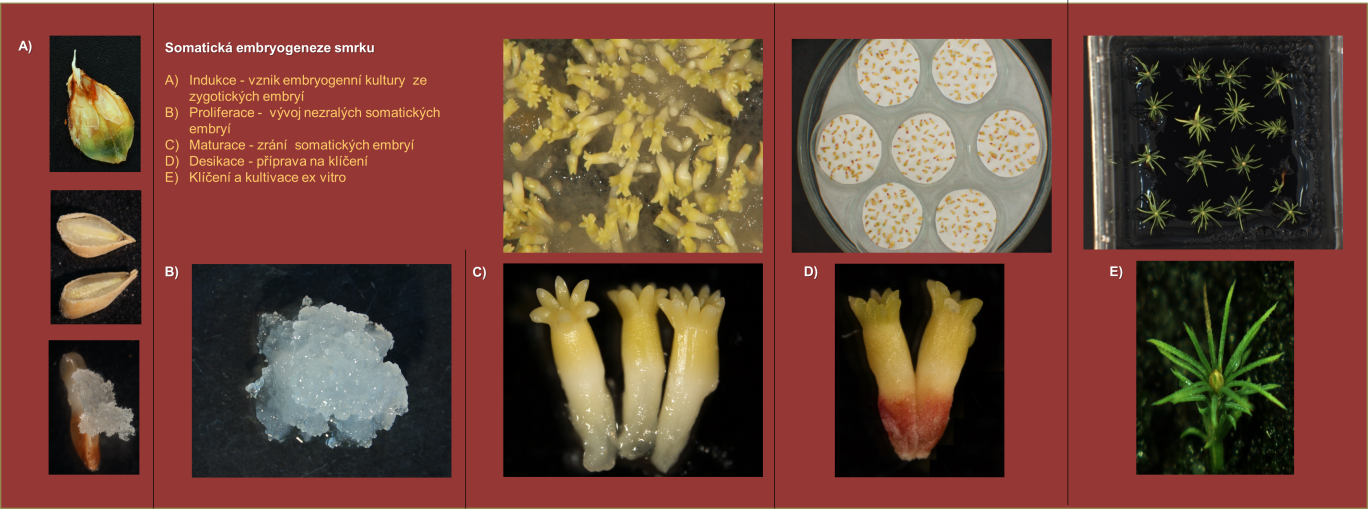The process of plant somatic embryogenesis allows the acquisition of a large number of genetically identical individuals. That fact is used in practice to obtain a rich progeny from a minimal number of seeds. At the same time, somatic embryogenesis is an ideal system for studying the early stages of plant development. Somatic embryogenesis starts by the derivation of embryogenic culture, mostly from zygotic embryos. Embryogenic cultures are cultivated in vitro on precisely defined media, whose composition determines further development of somatic embryos. In conifers the whole process consists of five basic steps - induction of embryogenic culture, proliferation, maturation of somatic embryos, desiccation and germination.

In the Laboratory of Biologically Active Compounds we use somatic embryogenesis of spruce and fir as a coniferous developmental model. In the beginning of our work with embryogenic cultures, we dealt mainly with methodology of their cultivation and we have optimized the cultivation procedures for the individual stages of somatic embryogenesis. Subsequently, we focused on the regulation of somatic embryo development. We have determined changes in endogenous levels of auxins, ABA and cytokinins in relation to the developmental stage of embryos. We have described the anatomical changes occurring during the development of embryos and we have also studied the role of the cytoskeleton in the development of somatic embryos. We have verified the possibility of embryogenic cultures cryopreservation. In recent years, we are studying the influence of stress factors on the course of somatic embryogenesis, especially in connection with changes in the content of polyamines and phenolic compounds. Recently, we concern on the role of autophagy in somatic embryo development.
Photographs documenting our work with somatic embryos of conifers can be found in the Gallery.
